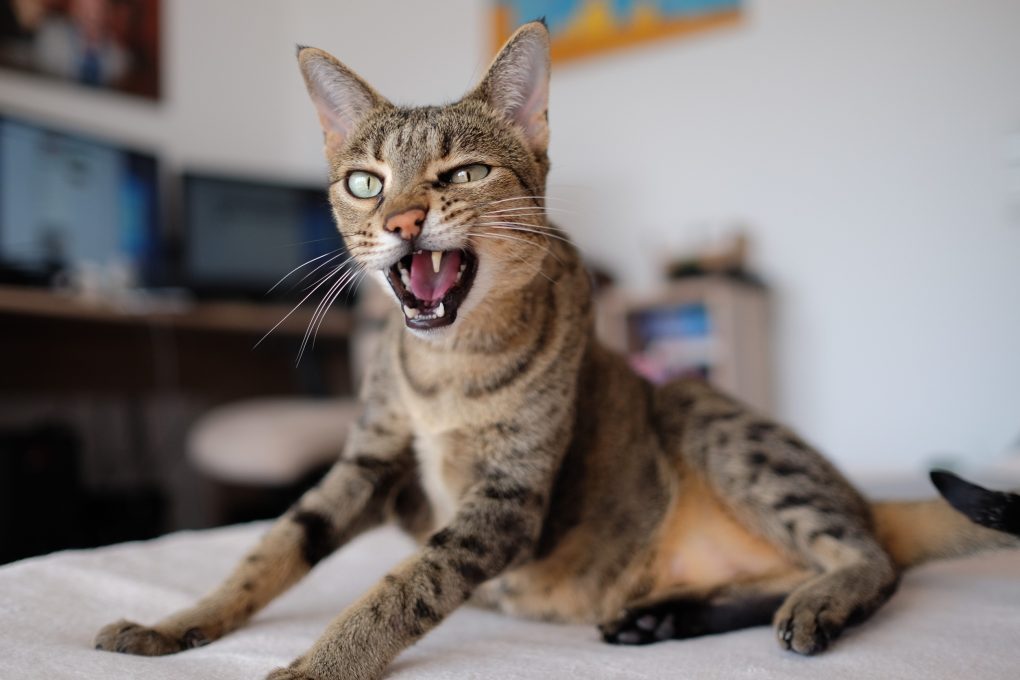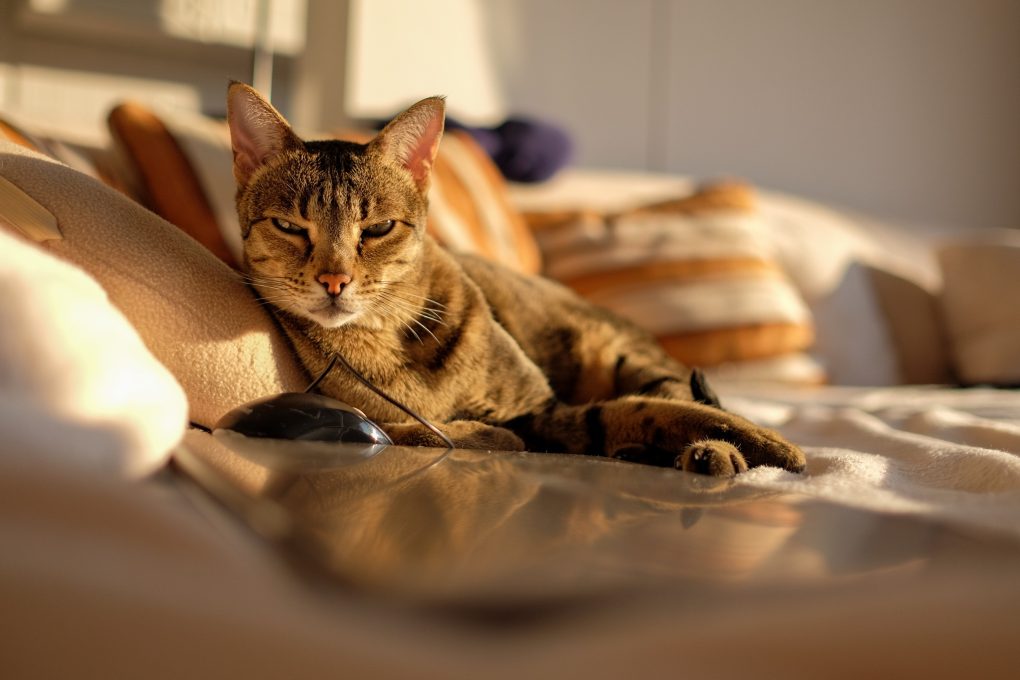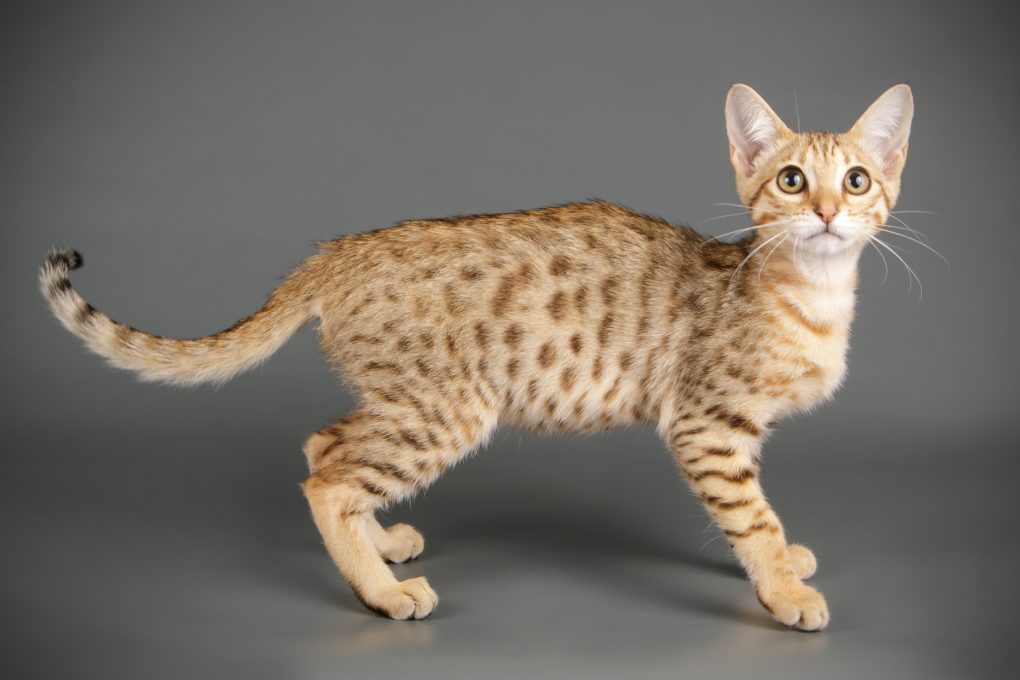Are Savannah Cat Dangerous: Assessing the Safety of Keeping This Breed as Pets and Reasons for Aggression
No, Savannah cats are not dangerous to humans, but they can be more challenging to care for than a typical domestic cat due to their size, energy, and personality traits. Savannah cats are a hybrid that results from breeding an African serval with a domestic cat, typically a Siamese or Oriental Shorthair.


The first-generation (F1) Savannah cats can have a rugged appearance and behavior, but subsequent generations (F2, F3, etc.) tend to become more domesticated. However, it’s important to note that some states and cities restrict owning Savannah cats, so it’s important to check local laws and regulations before adopting one.
Table of Contents
The Safety of Keeping Savannah Cats
Temperament
Savannah cats are friendly and non-aggressive and are known to love children and other domestic pets, and on the other hand, they can be aggressive when their territory is trespassed upon or if they are threatened.
Savannah cats are known for being very active, intelligent, and curious. They have a lot of energy and need plenty of stimulation and exercise to keep them healthy and happy. They may be more social than other cat breeds and enjoy spending time with their owners or pets.
Because they are a hybrid breed, Savannah cats may have some wild cat traits and can be more challenging to care for than a typical domestic cat. They may be more vocal and require more attention and playtime to keep them engaged.
It’s crucial to note that each cat is an individual and may have its unique personality and temperament. Early socialization and training can help to shape a Savannah cat’scat’s behavior and help them become well-adjusted pets.
Biting
Like all cats, Savannah cats have the potential to bite if they feel threatened, fearful, or agitated. However, correctly socialized and well-behaved Savannah cats should not be aggressive or prone to biting.
Also, Savannah cats may have some wild cat traits, such as a high prey drive or a tendency to be more active and vocal than other cat breeds, making them more challenging to care for.
To minimize the risk of biting or other aggressive behavior, it’s important to socialize and train Savannah cats early and provide them with plenty of mental and physical stimulation to keep them happy and healthy. It’s also essential to interact with Savannah cats gently and respectfully and to always supervise them around children and other pets to ensure their safety.
Reasons for Savannah Cat Aggression
Lack of Socialization
Savannah cats require a lot of socialization from an early age to become well-adjusted pets. Proper socialization may make them safe and friendly toward unfamiliar people, pets, or situations.


Socialization is the process of exposing a cat to a variety of people, animals, and environments in a positive and controlled way. It allows them to become accustomed to new experiences and reduces the likelihood that they will perceive unfamiliar situations as a threat.
Savannah cats require a lot of socialization from an early age to become well-adjusted pets. Without proper socialization, they may be more likely to view new people or pets as potential threats and may react defensively, which can result in aggressive behavior.
Aggressive behavior in cats can take many forms, from hissing or growling to biting or scratching. Therefore, it’s essential to promptly address any signs of aggression in Savannah cats, as aggressive behavior can escalate if left untreated.
Boredom or Frustration
Boredom or frustration can lead to aggression in Savannah cats because they are a very active and intelligent breed and need plenty of mental and physical stimulation to keep them happy and healthy. Without enough playtime, exercise, or other forms of enrichment, they may become bored or frustrated, resulting in aggressive behavior.
Savannah cats are highly active and have a lot of energy that needs to be expended through play and exercise. They may become restless and agitated when they do not get enough physical activity. This can lead to destructive behavior or even aggression. Savannah cats also require a lot of mental stimulation to keep their minds engaged. With enough enrichment, they may become bored and develop positive behaviors.
Savannah cats require a lot of attention, playtime, and interaction with their owners to prevent boredom and frustration. Providing them with toys, scratching posts, and other environmental enrichment can also help keep them mentally stimulated. Regular exercises, such as play sessions or access to a cat-safe outdoor space, can help reduce boredom and frustration and prevent aggressive behavior.
Territorial Behavior
Territorial behavior can lead to aggression in Savannah cats as they may become protective of their owner or living space and perceive unfamiliar people or pets as intruders. As a result, they may exhibit aggressive behavior to protect their territory.
Savannah cats are known to be more territorial than some other cat breeds. They may become defensive if they perceive their space is invaded or feel threatened. This can result in hissing, growling, or even biting.
It’s crucial to remember that territorial behavior is an instinct in cats, not necessarily a sign of a problem. However, if territorial behavior becomes aggressive, it’s essential to address it promptly to prevent it from escalating.
Providing your Savannah cat with a designated space that is all their own, such as a cat tree or a bed, can help them feel secure and may reduce territorial behavior. Additionally, gradual introductions to new people or pets can help reduce territorial behavior and prevent aggression.
Health Issues
Health issues can cause aggression in Savannah cats because they may be experiencing pain or discomfort, making them more irritable and more likely to lash out.


For example, dental problems, such as tooth decay or gum disease, can be painful for cats and cause them to become irritable and aggressive. Other health conditions, such as hyperthyroidism or feline lower urinary tract disease (FLUTD), can also cause changes in behavior that may lead to aggression.
It’s vital to take your Savannah cat to the vet regularly to ensure they are healthy and address any health concerns promptly. If your cat is exhibiting aggressive behavior that you cannot explain, it’s vital to have them evaluated by a veterinarian to rule out any underlying health issues.
In addition to seeking medical treatment for any health issues, addressing any behavior issues that may arise due to a health condition is essential. For example, providing your Savannah cat with a calm and quiet environment, with plenty of comfortable resting places, can help reduce their stress and prevent aggressive behavior.
